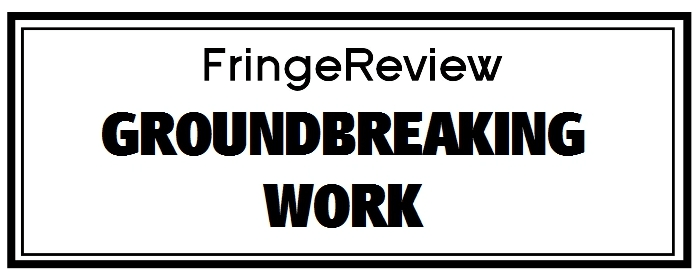FringeReview UK 2018
Richard II
Almeida Theatre, Islington

Genre: Classical and Shakespeare, Drama, Mainstream Theatre, Theatre
Venue: Almeida Theatre, Islington
Festival: FringeReview UK
Low Down
A stripped-back Richard II, here directed at the Almeida by Joe Hill-Gibbins. ULTZ’s grey bolted box echoes a giant solitary confinement with no bed. James Farncombe’s lighting is either merciless or fined down to blue-grey night-mode. Peter Rice’s sound hums isolation. An eight-strong ensemble appear in Claire Wardoper’s t-shirted and jeaned casuals Till February 2nd.
Review
‘I have been studying how I may compare/This prison where I live unto the world’ starts Simon Russell Beale’s Richard II, a speech he returns to dream-like over ninety minutes later. This full circle, squared off in ULTZ’s grey bolted box echoes a giant solitary confinement with no bed. After some years in such places, you hallucinate, lose the scolloped edges of sanity which scrape you instead. James Farncombe’s lighting is either merciless or fined down to blue-grey night-mode. Peter Rice’s sound hums isolation.
In the way of dreams, everything’s speeded up in this knife-whittled and flayed-back Richard II, directed by Joe Hill-Gibbins. In Measure for Measure Hill-Gibbins raised a box where a cast struggled through blown-up sex dolls. A Midsummer Night’s Dream was peculiarly British, full of mud.
This works better. As the eight-strong ensemble bounce off the walls or crouch in a corner, in Claire Wardoper’s t-shirted and jeaned casuals, they inevitably recall Phyllida Lloyd’s Donmar/Clean Break series of Shakespeare. But there’s no punitive framework, no break-in or out of warders.
This tonal ambiguity allows every contemporary reference to inscribe itself in water, or mud, or blood as slop-buckets get emptied, mainly over Beale. Inevitably they wash off. Self-delusions of presidents, emperors, or a Brexit-riven country can’t stick, but Hill-Gibbins suggests their parent and original is a leadership delighting in divide and rule. Richard’s tragedy is to indulge that impulse without the requisite psychopathy.
A king’s narcissistic hard-wiring turns to solipsism: but there’s seven mutable subjects who won’t leave it there, and Richard’s unique mix of overweening arrogance and indecision kicks off with his petulant handling of warring factions when gloves, literally, are off. Beale’s self-communing breaks into soliloquies in a grating purr unique to him. Environed by renegades he abuses them by wheedling in mock-pleas, most dangerous when kneeling and ensuring he rules the moment by playing supplicant to make towering Bolingbroke stoop. This Richard knows the power of ritual, that not even buckets of water ‘can wash the balm off from an anointed king.’
Beale can roar, though, in sudden unhinged moments and at this pace Richard seems more unpredictable than ever, as the cast switchback roles and fling themselves at each other; or turns faces to the wall when Richard steps forward.
There’s a ritual of gloves – one remembers Richard II introduced forks – which contrast with his own naked hands. So Hill-Gibbins inverts this refinement. A compelling Saskia Reeves – whose multiple roles include a hissing Mowbray – and Leo Bill’s ranging, athletic Bolingbroke go to it with accusations. They’re bidden to set themselves each side of Richard like something out of his Wilton Diptych. After counter-accusations you’re never sure whether delight or indecision rule Beale’s monarch, almost certainly both as he havers between banishments, promptly reducing Bolingbroke’s sentence because his father John of Gaunt (Joseph Mydell) looks pleadingly.
It’s Mydell who shifts gravity away from the king, in an exchange teetering on Richard’s side to violence against his old, dying uncle. Sheer velocity and counter-plot mean the civil broils are telescoped; so the most notable thing is the executions of Reeves’ Bushy and Martins Inhangbe’s Bagot by the first dousing in a bucket of blood. That’s a corner that despite a vanishing agent, remains bloody throughout as the floor grows slippery.
There’s fine work from John Mackay as the irate York, initially loyal to Richard, and one who once forced over to Bolingbroke is prepared to betray his own son’s plot and lose his only heir, again played by Inhangbe. Reeves as York’s wife is furiously bent on revoking that and the arrival of all three at court provides a shaft of bleak comedy to relieve the bleakness. It’s now Bolingbroke who has to bend, but his exoneration’s more prudent. Natalie Klamar as Carlisle and Robin Weaver’s Northumberland complete an alert, indeed acrobatic ensemble whose alacrity in role-switching is a tribute to them and Hill-Gibbins’ essential clarity.
In such a substantially abridged version much is necessarily lost: the architecture of crashed majesty, in its inexorable proof that regality alone, with all its ritual, can undermine itself. It’s a warning Elizabeth I glanced ironically at, and one Charles I, not dissimilar to Richard in temperament and obsession, refused to heed.
As earth and water are poured over him, Beale’s tragic self-realisation reaches a whispering grandeur commanding our attention, though his world has turned all ears away. When he utters ‘I wasted time, and now doth time waste me’ at the top of a husky arc, he’s entered a self-knowledge none can match, yet of course it’s mired in delusion, just as ‘this earth’ that John of Gaunt long ago pronounced, now clings to him ironically. It’s a savage anointing in a revelatory reading. Beale and this ensemble, ‘lay the living sinews bare’ as Geoffrey Hill once expressed a needy rapacity. The play can take it.


















































